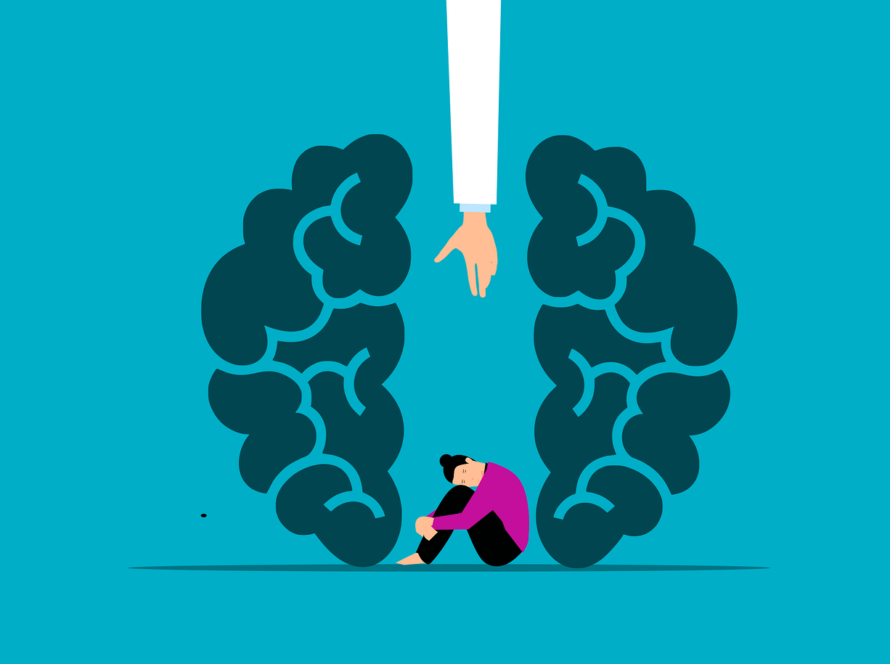Introduction
Emotional distress is an all-encompassing term that refers to a wide range of negative emotional states, such as anxiety, depression, grief, anger, and stress. In our fast-paced and demanding modern world, it’s not uncommon for individuals to experience emotional distress at some point in their lives. While many may dismiss these feelings as fleeting or unimportant, research indicates that prolonged emotional distress can have a profound impact on both mental and physical health. This article explores the link between emotional distress and its adverse effects on overall well-being.
The Mind-Body Connection
For decades, researchers have been studying the intricate relationship between the mind and body. The mind-body connection acknowledges that emotional states can significantly influence physical health. When a person experiences emotional distress, the body’s stress response is triggered, leading to the release of stress hormones like cortisol and adrenaline. In the short term, this response can be beneficial, helping us cope with challenges and threats. However, chronic emotional distress can lead to a prolonged state of stress, which negatively affects the body’s systems.
Impact on Mental Health
Emotional distress can take a toll on mental health, leading to a range of psychological conditions. Depression and anxiety are among the most common outcomes of chronic emotional distress. Prolonged sadness, hopelessness, and excessive worry can affect a person’s ability to function, cope with daily life, and maintain healthy relationships.
Moreover, emotional distress can also exacerbate existing mental health disorders or trigger the onset of psychiatric conditions in susceptible individuals. The constant strain on the mind can lead to emotional exhaustion, reduced cognitive abilities, and impaired decision-making skills.
Physical Health Implications
Beyond the mind, emotional distress also significantly affects physical health. The continuous release of stress hormones can disrupt various bodily functions, leading to a weakened immune system, increased inflammation, and high blood pressure. These physiological changes increase the risk of developing chronic health conditions such as cardiovascular disease, diabetes, and autoimmune disorders.
Sleep disturbances are another common consequence of emotional distress. Persistent worry and anxiety can disrupt sleep patterns, leading to insomnia and inadequate rest. Sleep is essential for the body to repair and rejuvenate itself, so chronic sleep disturbances can have cascading effects on overall health.
Unhealthy Coping Mechanisms
Individuals experiencing emotional distress often resort to coping mechanisms that may provide temporary relief but have long-term adverse effects on health. Substance abuse, including excessive alcohol consumption and drug use, is one such harmful coping mechanism. People may turn to these substances to numb their emotional pain, but they end up worsening their mental and physical well-being.
Emotional eating is another common coping mechanism, where individuals consume comfort foods high in sugar, salt, and unhealthy fats to soothe their emotions. This can lead to weight gain, nutritional deficiencies, and a higher risk of developing obesity-related conditions.
Breaking the Cycle
Recognizing and addressing emotional distress is crucial for preserving overall health and well-being. Here are some strategies to help break the cycle of emotional distress:
- Seek Support: Reach out to friends, family, or a mental health professional to talk about your feelings and experiences.
- Practice Mindfulness: Engage in mindfulness-based activities such as meditation, yoga, or deep breathing exercises to reduce stress and promote emotional balance.
- Engage in Physical Activity: Regular exercise releases endorphins, the “feel-good” hormones, which can help improve mood and reduce stress.
- Limit Substance Use: Avoid using alcohol or drugs as a means to cope with emotional distress. Instead, opt for healthier coping mechanisms.
- Prioritize Sleep: Establish a regular sleep routine to ensure adequate rest and recovery for both body and mind.
Conclusion
Emotional distress is not something to be ignored or dismissed lightly. It has a profound impact on both mental and physical health, affecting our overall well-being. Recognizing the signs of emotional distress and taking proactive steps to address it can go a long way in promoting better health and a higher quality of life. Seeking support, practicing mindfulness, engaging in physical activity, and adopting healthier coping mechanisms are essential steps towards breaking free from the grip of emotional distress and achieving a balanced and fulfilling life.



